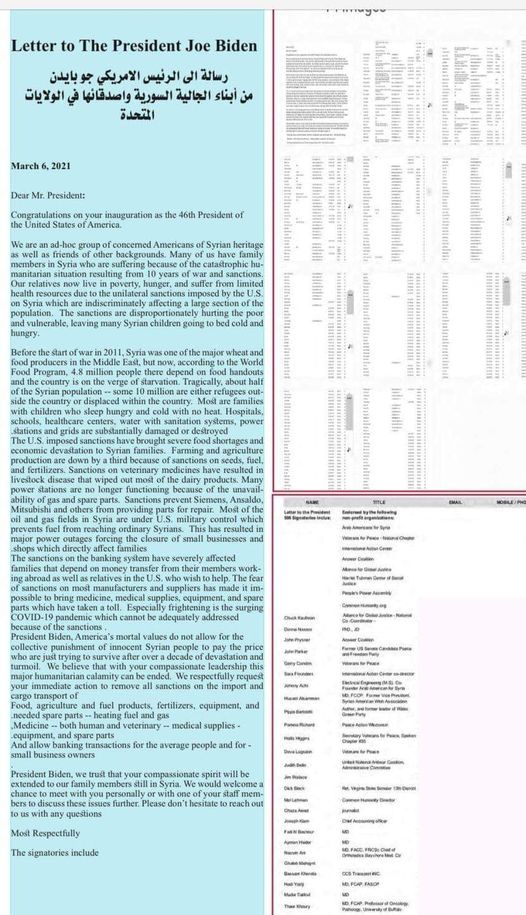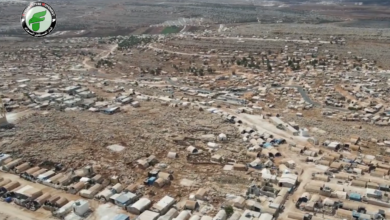A message from supporters of Bashar al-Assad’s regime, requesting the lifting of U.S. sanctions.

A message was sent by supporters of Bashar al-Assad’s regime, demanding the lifting of U.S. sanctions, particularly those imposed over the last six months under the Caesar Act, which affected 110 figures including senior intelligence officers, Asma al-Assad and her relatives, Abu Ali Khader, Samer al-Fouz, Hossam Qaterji, and officers who used chemical weapons against the Syrian people. The irony is that most of their demands are already exempt under the Caesar Act, and the rest are either stolen by the regime or monopolized by businessmen linked to it for large profits. Therefore, President Biden is the wrong recipient for this message; it should be sent to Bashar al-Assad to lift the siege on the Syrian people, stop his regime from stealing 50% of the aid sent by the United Nations, open the closed crossings so that aid can reach its rightful recipients directly, and pay Russia for wheat and Iran for oil so that the shipments can reach him directly instead of accumulating his money in foreign banks under different names.
Message from the Syrian community in America addressed to U.S. President Joe Biden:
Aimed at lifting sanctions on beloved Syria and alleviating our people’s suffering, this message was directed to U.S. President Joe Biden on the sixth of this month and reached the White House on Monday. It was signed by members of the Syrian community and twelve American human rights organizations. The signatories called for the lifting of all forms of sanctions imposed on imports and the transportation of goods, especially those concerning food, agriculture, petroleum derivatives, fertilizers, equipment, spare parts, and all types of human and veterinary medicines, and allowing financial transfers. The signatories noted that the occupation of most Syrian oil fields by the U.S. military and preventing petroleum derivatives from reaching the Syrian people has led to a severe shortage of petroleum products and a lack of electricity, consequently shutting down many small projects that entire families depended on for their livelihood.
20-03-2021






